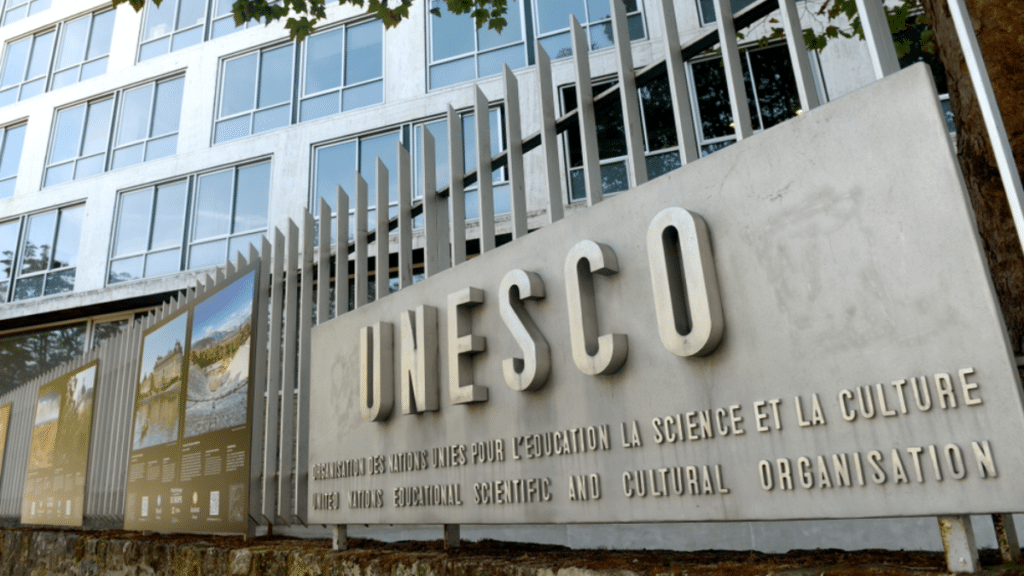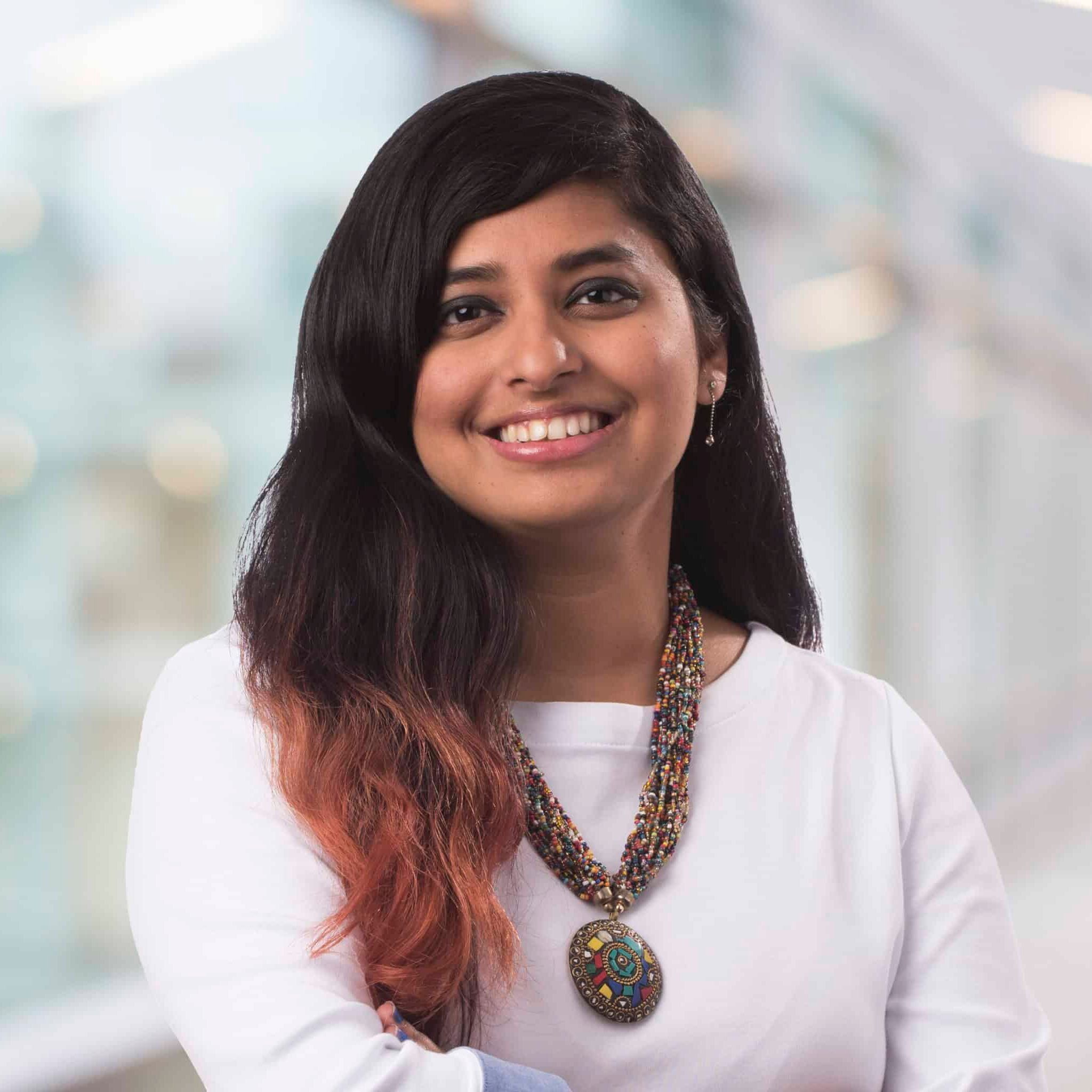The UN’s Blueprint for the Internet Could End Up Breaking It
Sabhanaz Rashid Diya / Nov 1, 2023Sabhanaz Rashid Diya is the founding Board Director at Tech Global Institute.

In the Fall of ’22, UNESCO — the United Nations’ cultural, education, and sciences arm — embarked on a bold mission: to fix the Internet. At first glance, it may seem unusual for an organization more known for its mandate to preserve heritage sites and promote education, to take a central role in defining one of the most contentious intellectual and political debates of our time. Then again, the Internet, particularly social media platforms, is as much culture as it is science, and there have been longstanding demands for an international content governance framework. UNESCO’s interventionposed to be a promising first step and was cautiously welcomed, in principle, by a wide range of stakeholders.
Nine months later, things have dramatically changed. Grassroots civil society, human rights, and progressive advocacy groups in Asia, Africa, and Latin America are concerned that UNESCO’s Guidelines for Regulating Digital Platforms could seriously impugn democratic movements around the world. In an open letter to UNESCO, over 50 Asian civil society and rights organizations expressed their fear that the proposal would legitimize all national regulations, which would further enable authoritarian regimes to weaponize and fragment the Internet.
Rather than focusing on high-level principles that would form the basis of any regulatory framework, the Guidelines put the onus of defending freedom of expression and combating online harms on national regulatory systems. In fact, it is the modus operandi for many European countries, such as Germany and France, amidst a growing global momentum to regulate platforms. The Guidelines require large platforms to share information with regulators without clear procedural safeguards about the proportionality of such requests. They provide users with a grievance redressal mechanism while enforcement and investigation powers lay exclusively with the national regulator.
In theory, this seems reasonable as nation-states have the legal authority to impose and enforce rules. However, this approach will prove largely ineffective in less mature democracies and autocracies. According to a report published by the V-Dem Institute at the University of Gothenburg, 72 percent of the world’s population, or 5.7 billion people, reside in an autocracy—a significant number of which are in low- and middle-income regions.
The global rise in authoritarianism is evident in the control of the information ecosystem and the weakening of the rule of law. Reporters Without Borders finds that out of 180 countries, seven out of ten have a “bad” environment for journalists. The bottom three places on this year’s World Press Index are occupied by Asian countries: Vietnam, China, and North Korea. Myanmar remains the second biggest jailer of journalists since the military coup in February 2021. As control over traditional media tightens and more people shift to social media to express dissent, repressive governments are expanding their control over platforms.
Global Majority governments, leaning towards populist or authoritarian rule, are increasingly adopting protectionist models influenced by China and Russia for their own national digital and platform regulations. These regulations mandate localization of data within national borders, removal of political content, and disclosure of personal data to law enforcement agencies without any procedural safeguards. By putting nation-states central to content governance in the absence of a comprehensive accountability framework, UNESCO’s Guidelines risk emboldening these dangerous proposals that threaten the open, unrestricted, and interoperable promise of the Internet.
Human rights groups and industry observers are already concerned about platforms repeatedly making concessions to restrictive governments. Since 2019, Google has complied with a majority of over 2,000 government requests to take down illegal content in Vietnam, according to the company’s transparency report. The country’s controversial Decree 72 requires platforms to restrict speech that defames or distorts information about State entities and respond to government requests in less than 24 hours. In July, the Vietnamese Ministry of Information and Communication mentioned Meta, Google, and TikTok have complied with 90 percent of content takedown notices constituting dissent against the State, the Party, brands, and individuals.
In 2020, Facebook and Twitter globally blocked accounts of supporters of former Brazilian president Jair Bolsonaro following a Supreme Court order amidst growing criticism of the unilateral powers of the judiciary to control online speech. Against this backdrop, the Guidelines could compel and legitimize platforms to ignore human rights and free speech concerns and comply with national regulations in order to operate in those jurisdictions. This means platforms can no longer be held to an interoperable standard of accountability and, instead, be justified in moderating content in a fragmented manner, much of which risks infringing upon international human rights law.
With over 50 elections scheduled for 2024 alone, the Guidelines could be perceived as the UN inadvertently endorsing a state-led online content moderation framework that could have a substantial and adverse impact on global democracy and civil liberties.
The case of UNESCO is not unique, but rather symptomatic of longstanding gaps between select Western democracies and the “rest of the world”, resulting in one-sided policy frameworks. In the last decade, the public discourse on Internet governance, especially that related to content moderation, has been dominated by a handful of wealthy nations in North America and Western Europe.
The UN’s involvement was seen as an unprecedented opportunity to level the playing field. Global Majority communities—civil society organizations, journalists, and democratic actors—were optimistic that the Guidelines would establish a set of binding international principles, drawing on UNESCO’s convening powers and robust multi-actor process. These principles would not only redistribute agency from wealthier to underrepresented regions, but compel governments and platforms to adhere to a more internationally consistent content moderation framework grounded in human rights values.
While concerns with the Guidelines remain unresolved, the UN is gearing up to play a more central role in setting the global rules for artificial intelligence (AI). This September’s UN General Assembly was a testament to growing ambitions within the UN and its Member States to fast-track rules for generative AI and platform governance under the Secretary-General’s roadmap for a Global Digital Compact (GDC). The effort was announced in 2022, with the Swedish and Rwandan governments co-facilitating consultations leading up to the September 2024 Summit of the Future. Just over 30 submissions are from the African continent and 25 from Asia, despite the Global Majority representing over 60 percent of the world’s Internet population.
Human rights groups have expressed concerns about the preferential treatment of Member States, UN bodies, and the private sector throughout the GDC process, often at the expense of input from the nongovernmental civil society and technical communities around the world. The consultations were followed by a rather underwhelming brief while details of GDC’s planned next steps, the Summit, and their intended impact remain unclear.
Meanwhile, various bodies of the UN continue to be poorly coordinated, sending conflicting signals to their stakeholders that are resulting in a hodgepodge of proposals, including UNESCO’s Guidelines and a voluntary Code of Conduct for information integrity for digital platforms. To make matters worse, this year’s UN Internet Governance Forum concluded with Secretary-General Guterres announcing Saudi Arabia—a country with a long history of repression and human rights abuses—as host for the 2024 annual meeting.
So far, the UN’s interventions in Internet governance are sending alarming signals that its bureaucracy is getting co-opted with authoritarian governments—particularly in the Global Majority—weaponizing Eurocentric policies to some degree to justify and amplify censorship as China and Russia continue to position their governance model as a viable alternative. This does not seem like a coincidence. The 2021 report titled Our Common Agenda, where the GDC was first introduced, is explicitly premised on a more networked and inclusive multilateral system for the Internet.
In other words, it is a call to centralize and bureaucratize the Internet with the UN at its helm. If UNESCO’s Guidelines are a teaser, then we all need to be extremely worried about the scale of consequences if the UN were to wield substantive powers over the future of the Internet through the GDC. The future of the Internet varies significantly depending on who has a seat at the table.
Much of the way forward comes down to the beginning (arguably) of the modern Internet, more specifically, the Tunis Agenda for the Information Society following two phases of the World Summit on Information Society in Geneva in 2003 and then in Tunis in 2005. The idea was that the future of the Internet should be tied to a robust multi-stakeholder process, inclusive of civil society, engineering and technical communities, businesses, governments, and academia. While multi-stakeholder models have been far from perfect, it has provided grounds for checks and balances, transparency, and accountability for the Internet’s norms and rules.
Therein lies the UN’s opportunity. Instead of centralizing the Internet through its established multilateral model, the UN should double down on multistakeholderism to ensure it is comprehensive and representative.
At this critical juncture, the UN, through its convening powers, is uniquely placed to reinvigorate multi-actor participation, ensuring nongovernmental and technical communities from a diverse range of Global Majority countries can play a meaningful role in shaping the future of the Internet. Grassroots organizers, civil society, academics, technical experts, and think tanks worldwide have done tremendous groundwork in documenting and understanding how the Internet intersects with society, its standards, and their human rights impact. By decentralizing the GDC, the UN can augment these efforts to define the next phases of a multi-actor Internet governance model that is grounded on universal, equitable human rights principles.
It goes back to the basics. Instead of focusing on what is illegal or isn’t, there is more value in institutionalizing a multi-stakeholder process that can lead to these definitions and norms. How should human rights law shape online content governance to apply to both companies and national regulators? Is there a universal definition for what constitutes hate speech, and how should these definitions be treated against the ICCPR or Universal Declaration of Human Rights? What frameworks should be applied to reduce the global values misalignment on safety and free speech? How should technologists approach ethics and human rights audits when designing, developing, or deploying automated moderation systems, especially in emerging economies?
In her 2009 TED talk, Chimamanda Ngozi Adichie spoke about the danger of a single story. To prevent Internet fragmentation and deepening the digital divide that favors only a few, the UN must shift away from multilateralism to meaningful multistakeholderism—inclusive of the Global Majority—fit for the public architecture of the Internet. And to do this, it needs to start by focusing more on the process instead of the material that ensures decentralized consultations and, ultimately, brings diverse voices to the table in shaping our shared futures.
Authors
